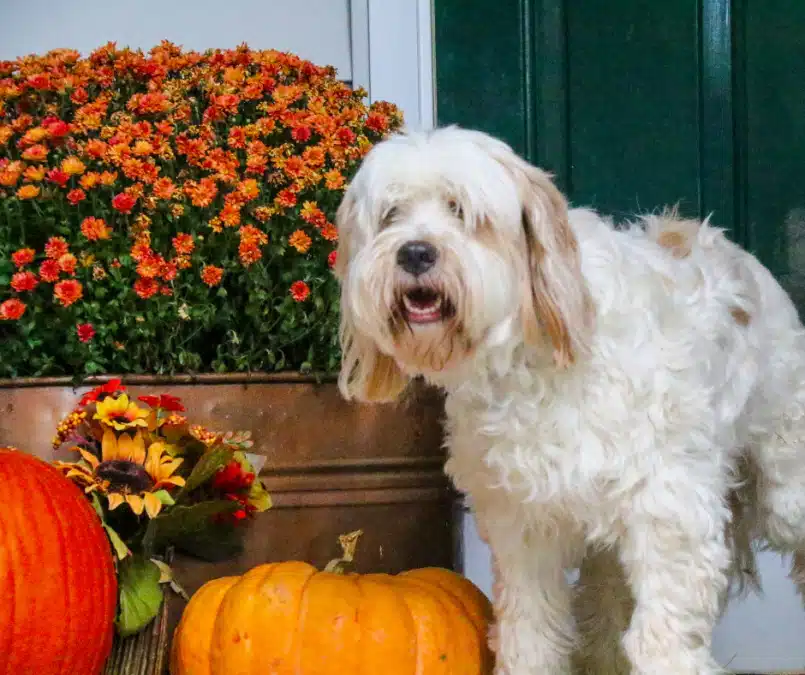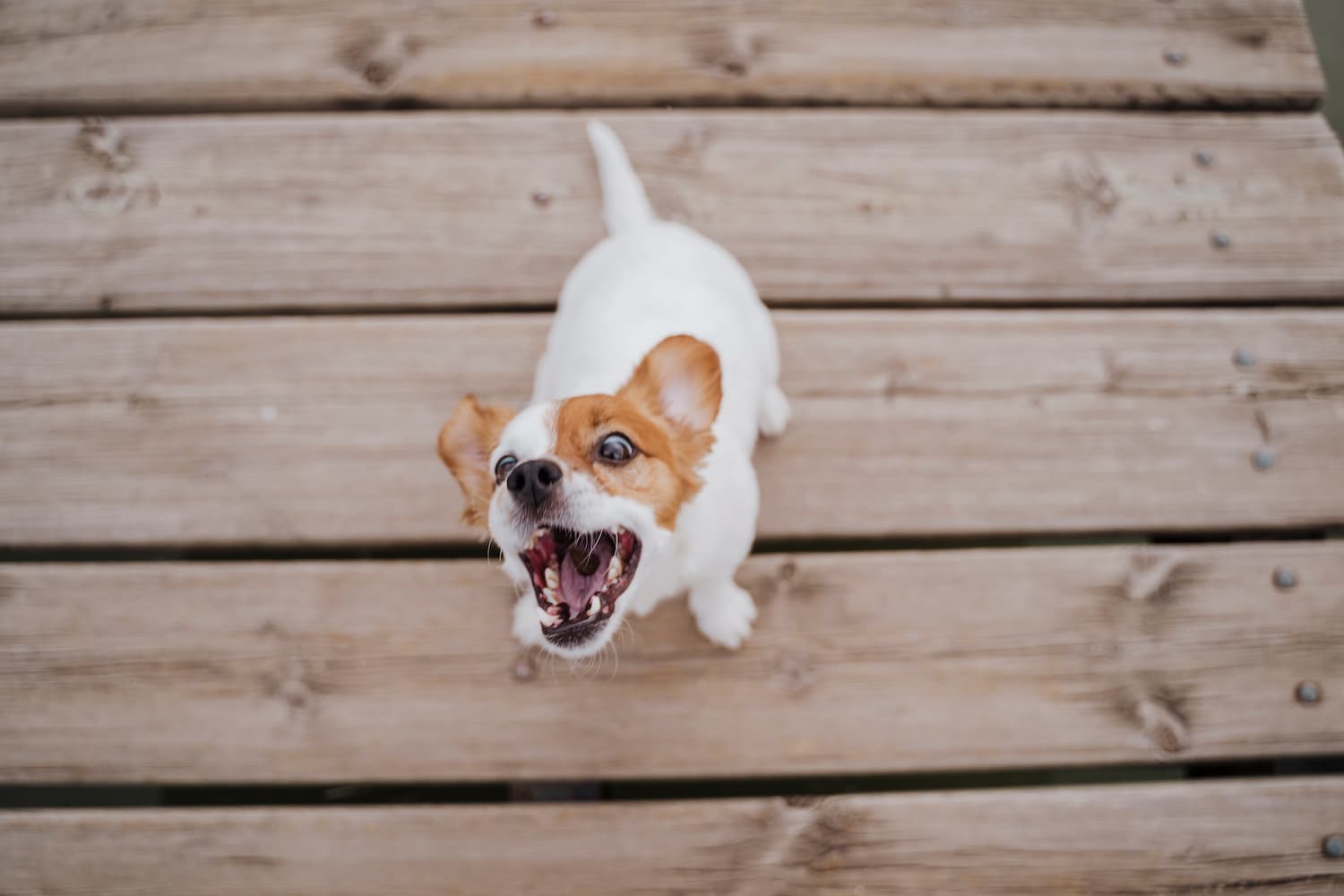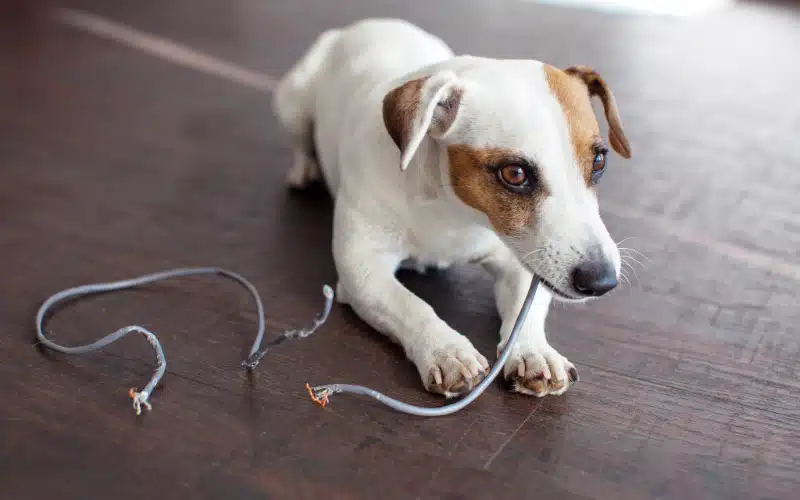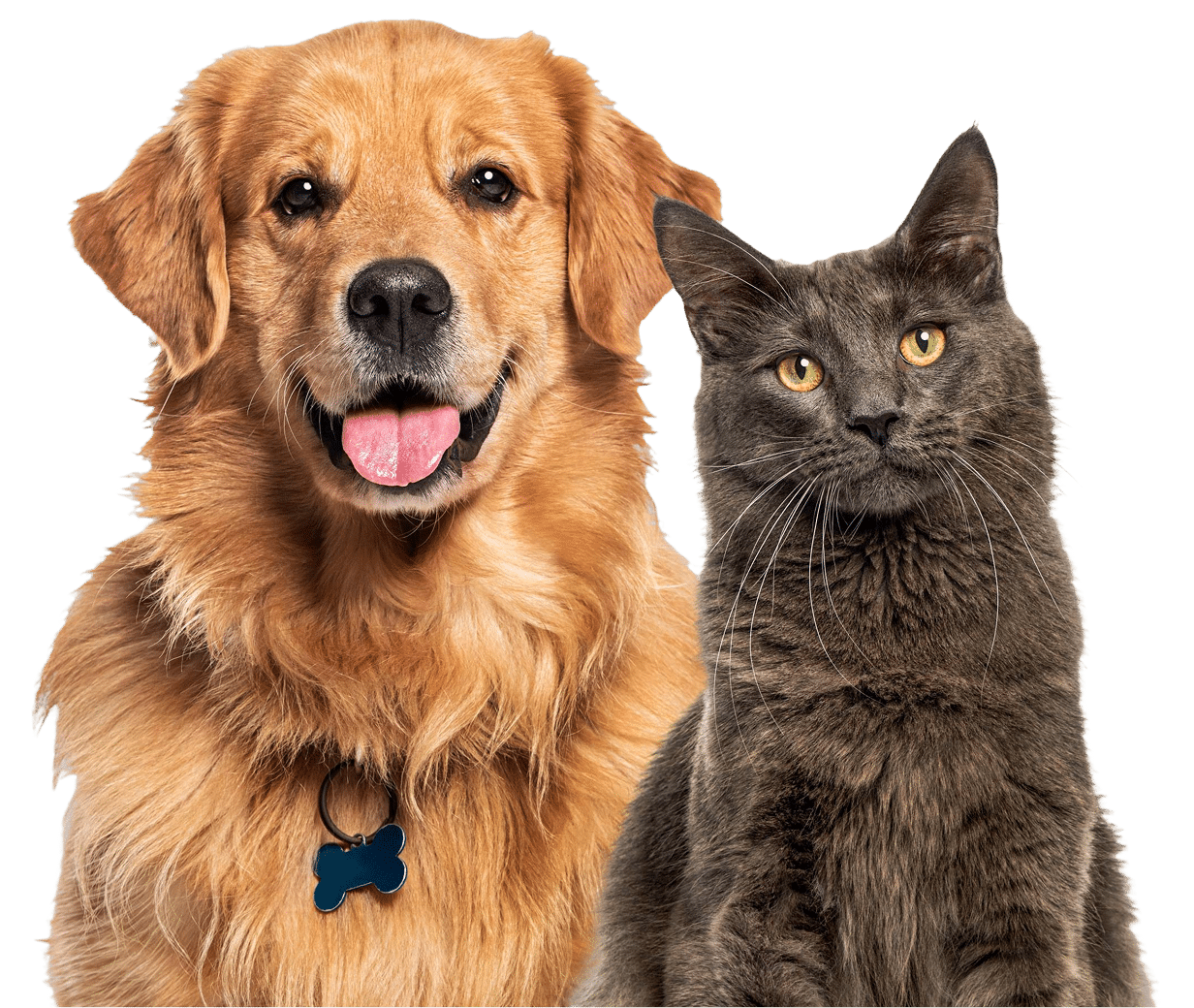
Preventing Fall and Winter Pet Toxicity
Although fall in Florida doesn’t often mean striking fall leaves, sweater weather, and fancy hot drinks, those who live here can see the subtle signs of a changing season. Cooling temperatures and pumpkin spice everything let us know that fall is here.
You may also notice your neighbors in their yards and garages getting ready for the fall and winter, which means considering your pets and their safety as preparations ensue. Fall holiday celebrations also require some planning and preparation to keep pets safe. Luckily, the team at Animal Emergency Hospital of Volusia has you covered.
Fall Yard Clean-Up Safety
Whether you’re planting spring bulbs, fertilizing your garden, clearing refuse, or preparing your home for the cooler months ahead, keeping your pets indoors and away from dangers while you tackle these items on your to-do list is your best bet.
It’s incredible (and scary!) how many pet-toxic materials are commonly used in the yard and garden. Although many substances may cause nothing more than vomiting and diarrhea, others can be fatal without veterinary treatment if ingested. Check your garden shed, yard, and garage for items listed here, and ensure your pets don’t have access to these potentially harmful substances, some of which are highly desirable to them!
- Bone meal
- Blood meal
- Fertilizers
- Pesticides
- Cocoa bean mulch
- Mushrooms
- Blue-green algae
- Snail bait
- Bulbs, especially crocus, tulip, lily, and hyacinth
- Garden plants
- Compost piles
Rat and Mouse Proofing Your Home
Rats and mice abound in our area, and they may decide that your shed, garage, or even house would be a great place to spend the winter months. But please be mindful of how you prevent these tiny creatures from entering your home. Rodenticides are highly toxic to your pets and natural predators (like bobcats, foxes, and owls) who keep their populations under control. Close up any holes that might attract them to your home, and discuss a pet-safe control plan with a professional exterminator instead of taking it on yourself.
Back to School
Now that kids are back in school ensure your pet doesn’t have access to their backpacks or school supplies. Pets may unknowingly chew on pens, pencils, and gluesticks, all of which can cause a foreign body blockage or gastrointestinal upset. In addition, the snacks and uneaten lunch items that sometimes make it home from school can also cause pet poisoning, especially anything containing xylitol (a sweetener common in gum) or chocolate.
No Tricks or Treats
Halloween is notorious for loads of candy, treats, and family fun. However, many of the treats and tricks we love about the holiday are unsafe for pets. Chocolate is toxic to dogs and cats, and candy and other goodies can cause tummy trouble, foreign body obstructions, or xylitol toxicity. Keep all Halloween treats safely away from pets.
Ensure your pet doesn’t escape and get lost during the festivities by keeping them in their own safe, quiet room. Black cats should be especially protected indoors for several days before and after Halloween. Before the holiday, check to ensure their microchip contact information is correct and that they wear their collar and ID tags. If taking your pet along for outdoor fun in the evening, use a leash and collar with reflective tape so drivers can see your pet in dim light.
Snakes
Snake bites are not only very painful for pets but can cause life-threatening toxicity if the snake is one of the venomous species in our area. Snake bites can be more likely in the fall since snakes can be grumpy as they prepare to hibernate, making them more aggressive and dangerous to curious dogs and cats. Keep pets on a leash when walking, and don’t let your dog dig along paths or explore holes. Keep cats inside, and check your yard before letting pets out for any wildlife that may be present. If you suspect a snake has bitten your pet, seek veterinary care immediately.
Compost bins or piles
Compost bins and piles can be great for your garden, but decomposing and decaying organic matter can be attractive to pets and highly toxic. Molding food can potentially contain mycotoxins, which, if ingested, can cause pet poisoning. Signs include vomiting, fever, agitation, incoordination, muscle tremors, and seizures. Call your veterinarian or our emergency service immediately if you suspect your pet has eaten compost.
Mushrooms
It is no surprise that our state’s warm, moist climate is perfect for mushroom growth every year. Many mushrooms that grow in our area are harmless, but some varieties can cause vomiting and diarrhea in pets, and others can cause liver failure and even death if ingested. The Amanita genus is incredibly toxic to pets. Still, because it is difficult for pet owners and veterinarians to quickly identify the mushrooms in your yard or on your walk, it is always safest to keep pets well away from mushrooms altogether. Puppies like to put anything into their mouths, so keep puppies leashed at all times, clear any mushrooms from your yard, and always supervise them. Mushroom toxicity causes vomiting, diarrhea, ataxia, depression, muscle tremors, and seizures. If your pet has ingested any amount of mushrooms, seek emergency veterinary care immediately.
When the seasons change, there is always a lot to do, and these transitions affect your pet. However, being aware of fall pet toxins can bring peace of mind, health, and safety to the season. If you’re worried about your pet or suspect they got into something they shouldn’t, contact one of our 24/7 emergency hospitals – Animal Emergency Hospital Volusia or Animal Emergency Hospital DeLand – immediately.



